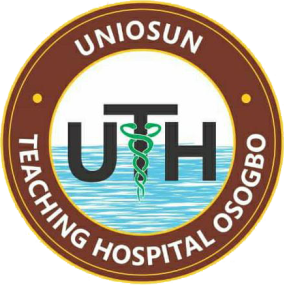OFFICIAL REPORT
Accreditation of the College of Nursing Sciences, UNIOSUN Teaching Hospital, Osogbo
Accreditation Summary
The Nursing and Midwifery Council of Nigeria has approved the establishment of the College of Nursing Sciences at UNIOSUN Teaching Hospital, Osogbo, Osun State. The college has been granted provisional accreditation status with the following annual student intake limits:
Nursing and Midwifery: 50 students
Accident and Emergency Nursing: 50 students
Anesthesia Nursing: 30 students
Nephrology Nursing: 30 students
Pediatrics Nursing: 30 students
Perioperative Nursing: 30 students
Each programme is required to remit a sum of ?3,281,250 annually into the Councilís account.
Identified Deficiencies
The accreditation review highlighted several areas requiring immediate attention:
1. Funding and Financial Allocation
The imprest allocated to the Director of Nursing is insufficient for effective operations.
2. Staffing
No registered educator is available for the Post-Basic Perioperative Nursing programme.
The number of qualified educators for the Post-Basic Anesthesia, Accident and Emergency, and Nephrology Nursing programmes is inadequate.
3. Infrastructure and Facilities
Administrative offices are only moderately furnished, limiting operational efficiency.
Classrooms for Post-Basic Nursing and Midwifery programmes are sparsely furnished and fail to meet required standards.
No basic science laboratory, which is critical for foundational nursing education.
The nursing demonstration room is not spacious enough for effective practical training.
4. Hostel Accommodation
Student hostel facilities are inadequate to cater to the needs of enrolled students.
5. Curriculum Content
The curriculum lacks sufficient incorporation of local content to address region-specific healthcare challenges.
Recommendations
To meet accreditation standards and enhance the quality of training provided by the college, the following actions are recommended:
1. Increase the Imprest Allocation
Review and adjust the imprest for the Director of Nursing to align with operational demands.
2. Address Staffing Shortages
Recruit qualified educators for the Post-Basic Perioperative Nursing programme.
Increase the number of educators for other Post-Basic programmes, including Anesthesia, Accident and Emergency, and Nephrology Nursing.
3. Improve Infrastructure
Fully furnish administrative offices and classrooms to create a conducive learning environment.
Establish a basic science laboratory and expand the nursing demonstration room to meet practical training needs.
4. Enhance Hostel Facilities
Expand and upgrade hostel accommodation to ensure adequate capacity and comfort for students.
5. Revise the Curriculum
Incorporate more local content into the curriculum to address the healthcare needs of the community.
Conclusion
The College of Nursing Sciences, UNIOSUN Teaching Hospital, has made significant progress by achieving provisional accreditation. However, addressing the identified deficiencies is critical to attaining full accreditation and achieving excellence in nursing education.
By implementing the recommended actions, the college will position itself as a leader in quality nursing training and healthcare delivery in the region.
.jpeg)
